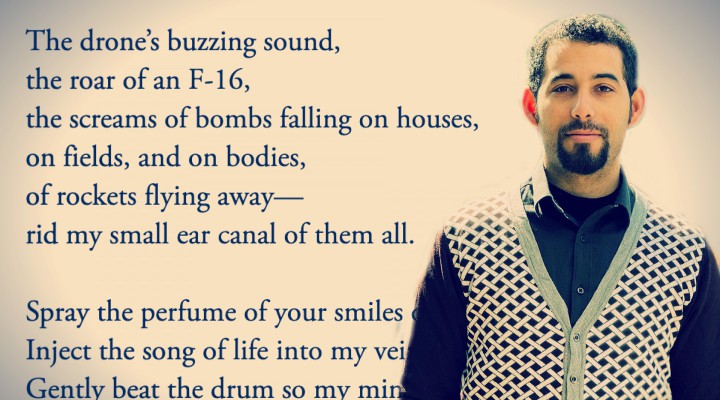Seeing Gaza through the poetry of Mosab Abu Toha

‘More death, more destruction. Who can stop this? Please stop it now’: A profile of the award-winning Palestinian poet Mosab Abu Toha who was abducted, blindfolded and taken for interrogation, then later released by Israeli forces earlier this week.
“Walk quickly or else I will shoot you,” an Israeli soldier told Maram Abu Toha last Sunday, as she walked towards her husband, the Palestinian poet and writer Mosab Abu Toha.
The Abu Toha family, along with other forcibly displaced Palestinians in Gaza, were making their way to the Rafah border.
Mosab was abducted along with another 100 Palestinians, blindfolded and taken to Southern Israel for interrogation.
He was released on Tuesday and the Israeli military confirmed his earlier arrest which it contextualised through its security narrative of Palestinians affiliated with armed groups.
Mosab’s last post on X prior to his detention gave a bleak overview of the Palestinian plight in Gaza. It partly read, “More death, more destruction. Who can stop this? Please stop it now.”
A rhetorical question for sure, but one that is also reminiscent of his poetic works titled Things You May Find Hidden in My Ear, which won a Palestine Book Award in 2022.
A detailed interview included in the book sheds light on Mosab’s experience of being Palestinian, being a refugee, experiencing Israeli colonial violence, and the way Palestinians relate to memory.
Born in 1992 in the Al-Shati refugee camp in West Gaza, Mosab Abu Toha is the son of Palestinian refugees hailing from Jaffa on both sides of the family.
His father, who was also born in the Al-Shati refugee camp, was instrumental in communicating the family’s history which he likens to Palestine: “I realise that this is like the rest of Palestine outside of Gaza: something I can hear about but not see or touch in person.”
Instead of seeing Palestine’s entirety, Palestinians in Gaza have witnessed and experienced the brutality of Israeli colonial violence.
Poetry is not merely an abstract feeling, but also the documentation of reality in some cases, as Mosab explains in his understanding of the British Romantic poets.
“When they tell me about the trees, the rivers the clouds, the flowers, they are inviting me to live their experience, which is a very good way for me to travel outside Gaza. So I’m travelling through their poems”
And in much the same way, Mosab’s poetry and writing transports the reader to Gaza. Last month, after Israel commenced its deadly bombardment of Gaza, Mosab penned an essay for The New Yorker, in which he described the details of what apprehension over Israel’s bombing and the impending forced displacement look and feel like.
The claustrophobic atmosphere of blockaded Gaza, the absence of children playing on the street, and tangent memories. “More notifications are lighting up my phone. Sometimes I don’t check the news. We are part of it, I think to myself,” Mosab writes.
On October 29, Mosab shared the news that his house was destroyed by Israel’s bombing. His books were destroyed, along with other belongings.
In 2017, Mosab opened the Edward Said Library in Gaza – an endeavour which was inspired by the poet’s saving a copy of The Norton Anthology of American Literature from the rubble at Gaza’s university in the aftermath of Operation Protective Edge in 2014.
It is also Gaza’s first English language library, and it is a particular achievement, given that Israel’s illegal blockade also affects the Palestinian people’s access to literature in the enclave.
 TheAltWorld
TheAltWorld 
0 thoughts on “Seeing Gaza through the poetry of Mosab Abu Toha”